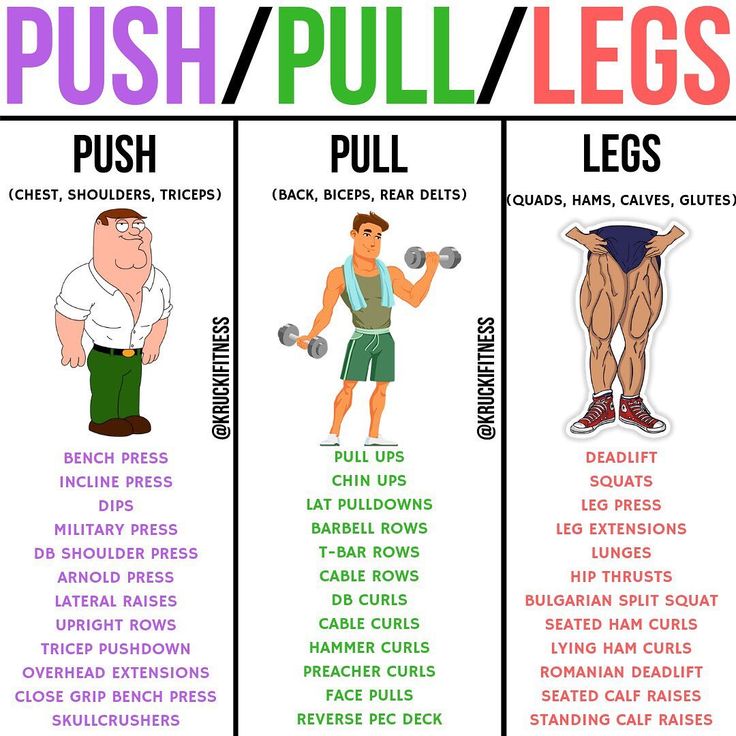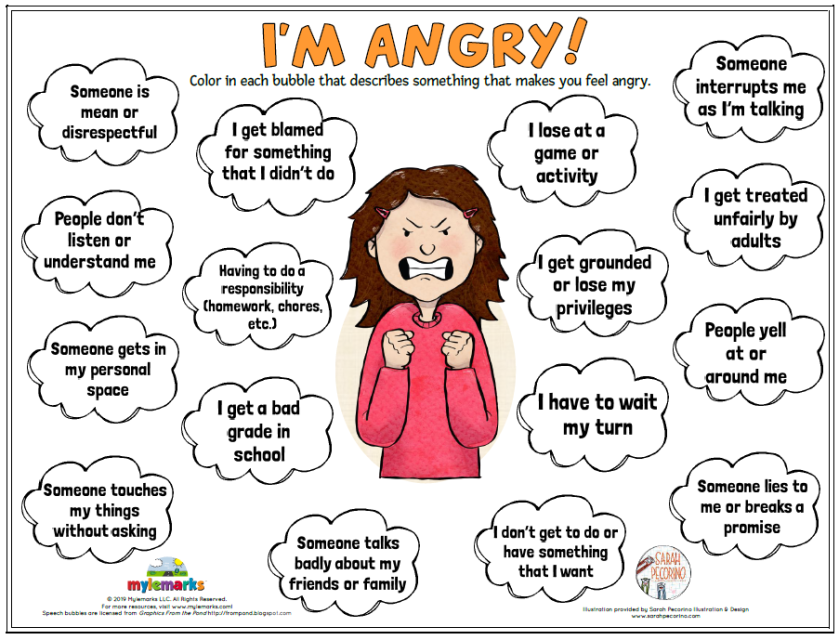Questions for self esteem
50 Deep Questions for Improved Self-Confidence
Home » 50 Deep Questions for Improved Self-Confidence
in Journaling, Mindset, Self-Care, Self-Improvement ·
This post contains affiliate links meaning that, at no additional cost to you, I make a small commission if you purchase through my links. For additional information, visit my affiliate disclosure.
Looking to boost your self-esteem in a simple, easy way? These 50 questions for self-confidence are a sure-fire way to feel a confidence boost in just a couple of minutes.
Self-confidence is like a muscle. We all have the ability to build stronger self-confidence muscles, but we have to exercise our self-confidence to achieve that.
Throughout our everyday lives, it’s easy to get lazy with our self-confidence usage. We may find ourselves feeling poorly about our appearance, performance, circumstances, or something else. Honestly, we, unfortunately, live in a society where low self-esteem is incredibly common.
An estimated 85% of people have low self-esteem.
But that doesn’t mean your self-esteem has to take a hit.
You can be a part of the other 15% – but you have to work at it. By practicing building self-confidence daily, you can improve your self-perception and self-esteem drastically.
Two of the best ways to improve self-esteem and build self-confidence are:
- Identify and challenge negative beliefs.
- Identify the positive about yourself.
These 50 questions for self-confidence are based on those two self-esteem-boosting mindset habits. It can be incredibly insightful to ask ourselves deep questions about our negative, self-limiting beliefs first. From there, we can shift into identifying the amazing things about ourselves.
This is a perfect recipe for improved self-confidence.
These questions are all about building that self-esteem muscle. If we think of self-confidence as something we need to routinely exercise, it makes sense to refer back to these questions more than once.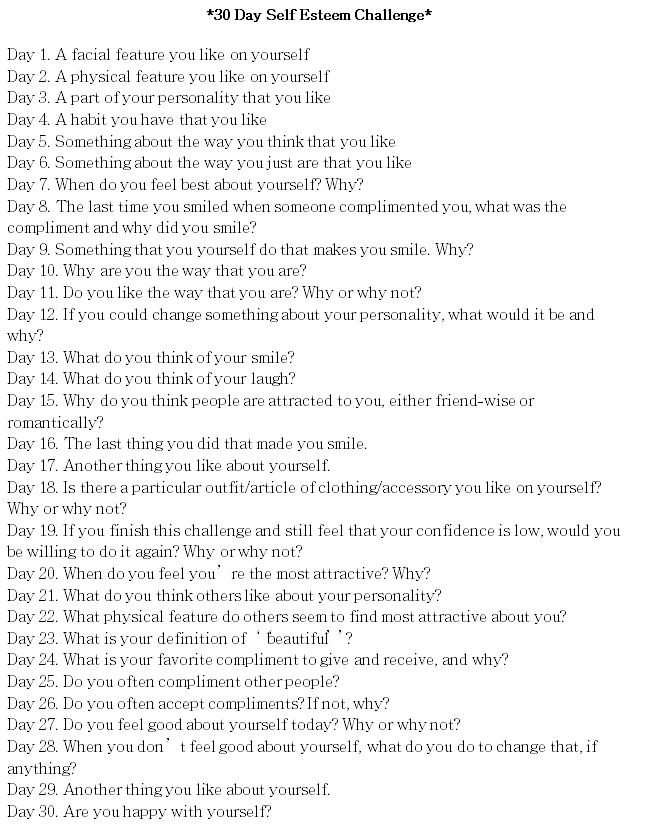 You may want to save these questions to refer back to over and over again. Allow your answers to shift as you take steps on your self-confidence journey.
You may want to save these questions to refer back to over and over again. Allow your answers to shift as you take steps on your self-confidence journey.
Now, let’s jump in! Grab a pen and paper and start writing on these 50 questions for self-confidence.
50 Deep Questions for Improved Self-Confidence
Self-Confidence Questions: Identify & Challenge Negative Beliefs
Some of these questions may feel difficult to answer. We often don’t realize the limiting self-beliefs we have. Answer these self-confidence questions as honestly and accurately as possible.
Remember: identifying limiting self-beliefs does not make them true!
- What negative thoughts come up most about yourself?
- Do you often hold yourself back from opportunities because of fear of failure? Why?
- What negative beliefs do you hold about your appearance?
- What negative beliefs do you hold about your abilities?
- When have you felt “not good enough”? Why?
- What is your first memory of feeling insecure, embarassed, not good enough, etc.
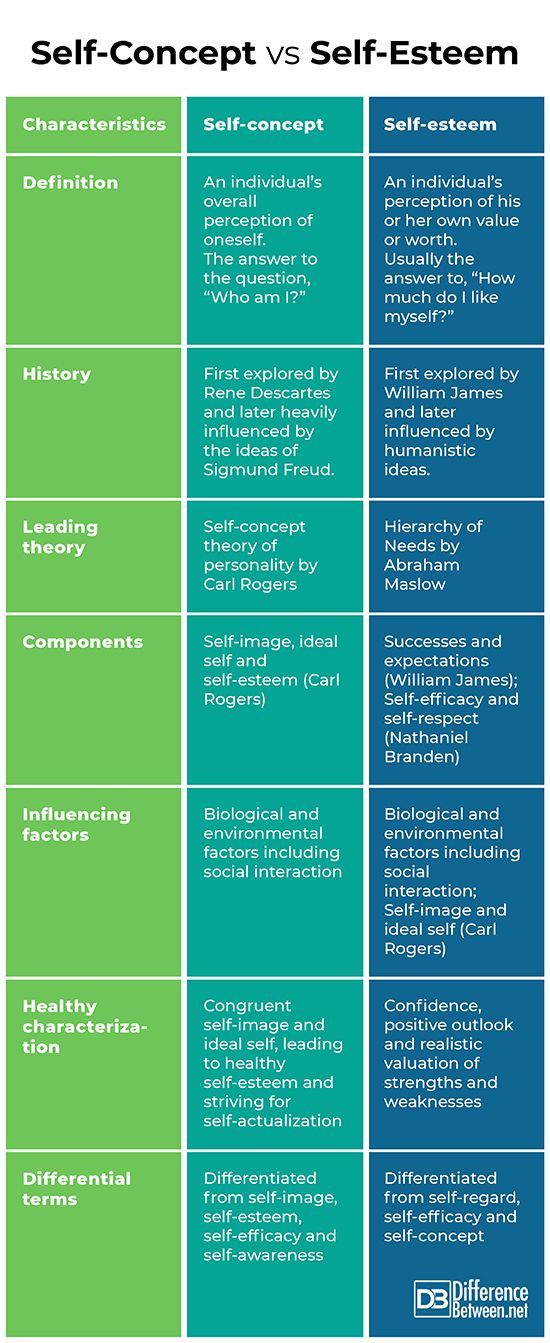 ?
? - When is the last time you said “I can’t”? Was that really true?
- What is one limiting belief you can challenge today? How will you prove yourself wrong?
- Where do you fall victim to other’s opinions?
- What do you doubt yourself about the most?
- How do the opinions of other’s affect you?
- Are there people in your life that reinforce self-limiting beliefs? How can you set boundaries with these people?
- Make a list of every self-limiting belief you have. (“I am not smart”, “I am unattractive”, “I am bad at relationships”)
- How do you response to criticism?
- When do you doubt your professional abilities? Why?
- When do you doubt your personal abilities (ocial, relational, etc.)? Why?
- Replace every listed limiting belief/self-doubt from above questions with a contradictory self-confidence affirmation. (“I am lovable”, “I am smart”, “I am capable”)
- Brainstorm 1-2 ways you will prove the affirmations from #17.
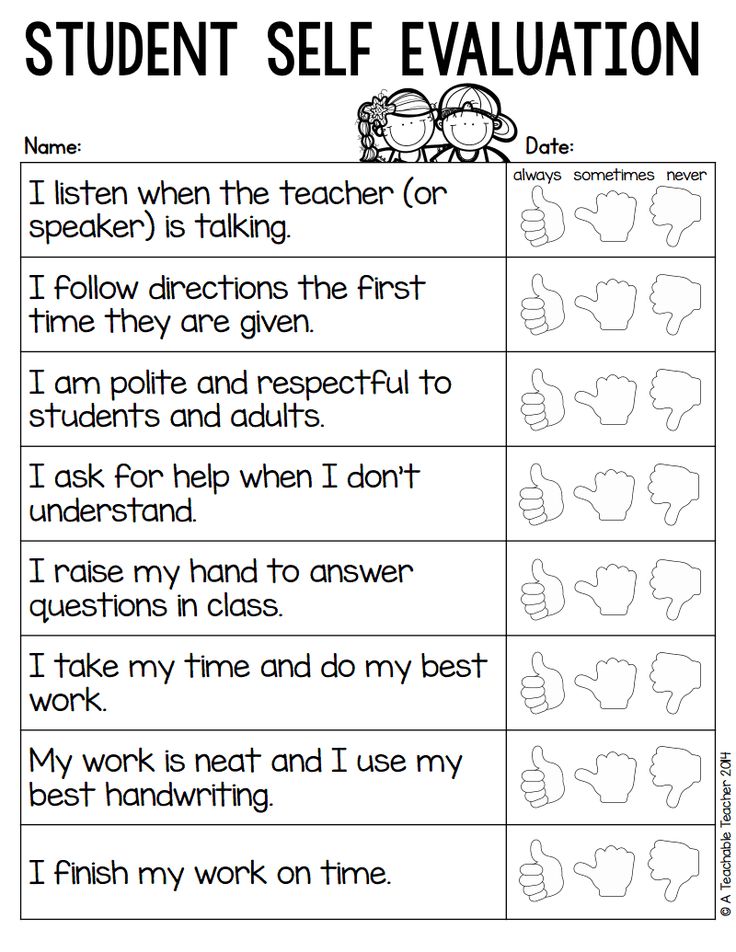 (ie. “I am loved” can be proven by spending time with a loved one)
(ie. “I am loved” can be proven by spending time with a loved one) - Reflect on a time you surprised yourself by overcoming a limiting beief. (ie. job promotion, someone loving you back, you did something you thought you couldn’t)
- What critique is particularly hard for you to take? Why do you think?
- In what ways do your limiting belifes serve you? Why do you hold onto them?
- What painful experience from your past still holds you back today?
- What makes you feel anxious, eneasy, etc.?
- Describe the last time you felt “not good enough”. Where does that stem from? How does that impact you?
- Imagine a life with zero limiting beliefs. What does that look like for you?
Self-Confidence Questions: Identify Your Positive Qualities
Identifying the good things about yourself can feel awkward, uncomfortable, or even arrogant. It’s important to remember that you are not cocky or full of yourself for recognizing the good things about yourself.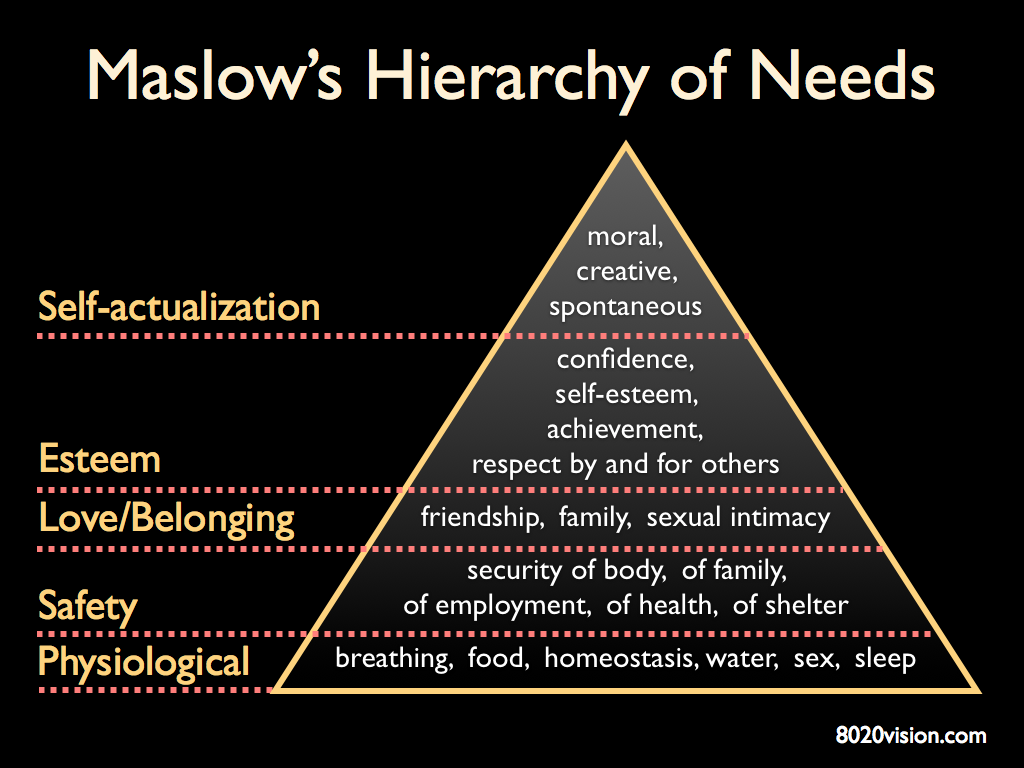 This is simply an act of self-love and self-appreciation.
This is simply an act of self-love and self-appreciation.
These self-esteem questions are here to get you to recognize the amazing things about yourself and boost your self-confidence!
- What makes you a good friend/sister/daughter/spouse/etc.?
- Write about a time that you positively impacted someone’s life.
- List your 10 favorite personality traits about yourself.
- List your 10 favorite physical traits about yourself.
- What are your positive core beliefs/values? How do those make you a better person?
- What are you most proud of that you’ve accomplished?
- Describe a time that you felt completely loved and accepted by someone.
- How have you grown over the past year? 5 years? 10 years?
- What have you overcome that you ar proud of?
- Who do you look up to and why? How can you embody some of the character traits that inspire you in them?
- When have you been a hero for someone else? Describe that situation.
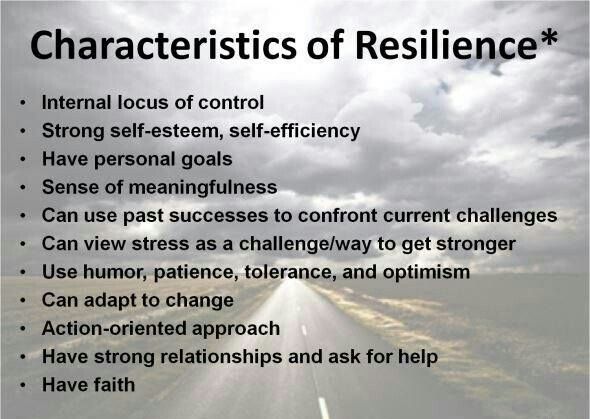
- What are you most excited about in your life right now?
- What is your purpose or passion in life? How are you valuably spending your time on earth? What makes you special and important?
- In what areas of your life do you feel confident and secure? How can you bring that confidence into other areas?
- Define self-confidence for yourself. What do you want your self-confidence to look like?
- What quality of your own do you love in others? Write about how that makes your special.
- When do you feel the most alive? Why? Describe that feeling.
- How have you learned from past pain/negative experiences? How has that made you a better person?
- When’s the last time you felt powerful/successful/proud/etc.? Why?
- What do people often compliment you for? Note some common compliments you recieve. (Note: if someone said it, they meant it! Don’t let your brain tell you these things aren’t true!)
- What does success mean to you? In what areas of life are you successful?
- What have you accomplished? Make a faux resume of all the things you have done that make you great!
- How are you a good person? In what ways do you care for those around you?
- When’s the last time you did something kind for a stranger? How can you start doing one kind thing like this everyday?
- What are 5 actionable ways you can improve your self-confidence this week? Month? Year?
Tips for Asking Yourself These 50 Self-Confidence Questions
When asking yourself these questions for self-confidence, here are a few tips and tricks to get the most out of them:
- Journal your response.
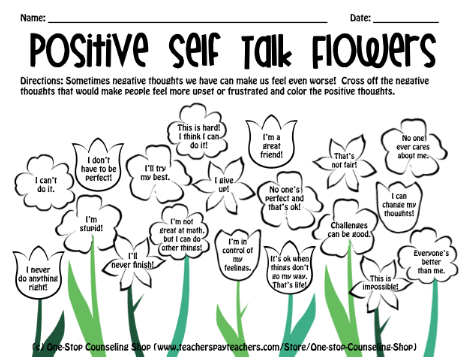 Mentally asking yourselves these questions is good, but journaling on these questions is even better. You can go deeper into self-reflection through journaling. (Plus, then you can look back on your responses later on in your self-confidence journey!)
Mentally asking yourselves these questions is good, but journaling on these questions is even better. You can go deeper into self-reflection through journaling. (Plus, then you can look back on your responses later on in your self-confidence journey!) - Ask yourself these questions more than once. There is no limit to the amount of times you can answer these questions. Your answers will shift as you change and grow.
- Don’t tackle all these questions at once. Hello, overwhelm! There are way too many questions here to take on all at once. Space them out. Save this post so you can refer back to it over and over again.
- Sit with uncomfortable emotions. Being uncomfortable can be a sign of growth. If these questions bring up tough emotions, try to sit with them and explore them. Emotions are information.
- Be honest. These questions are for you and your ownn personal self-confidence journey.
 There is no “right” answer to any of these. Being honest will give you the most benefit out of these self-confidence questions.
There is no “right” answer to any of these. Being honest will give you the most benefit out of these self-confidence questions. - Choose your timing wisely. Don’t answer these questions in a state of rush, panic, or stress. Instead, choose a calm moment to sit down and reflect deeply on these questions.
- Add in self-care. Sprinkle some self-care activities in between your question-answering sessions. This is deep work. Lighten the load by showing yourself some love and kindness.
- Be kind to yourself. Give yourself grace always. Show yourself love always. Be kind to yourself always. This is a journey towards self-confidence. You can’t get there without a little self-love and compassion too.
Keep asking yourself questions for self-confidence.
Pin These Self-Confidence QuestionsSelf-confidence and self-esteem are not built overnight. It is a constant practice that you should incorporate into your everyday life. These questions for self-esteem can be asked over and over again.
These questions for self-esteem can be asked over and over again.
Notice how your answers shift as you continue asking yourself questions about self-confidence.
Do you feel your confidence growing? Are you learning new things about yourself? Are you unlocking roadblocks and barriers to self-confidence that you didn’t know were there?
All of these are signs that these questions are working how they are supposed to. Self-confidence and building self-esteem is a journey. Over time, you will morph, change, grow, and evolve.
Keep at it.
More Posts Related to Self-Confidence
100 Self-Reflection Questions to Ask Yourself
10 Must-Read Books for Self-Discovery
55 Journal Prompts for Body Image
About Me
Hi! I’m Delaney (but you can call me Del)! Welcome to Authentically Del where we discuss all things success and productivity while still prioritizing mental health, self-care, and happiness! I am just here to help YOU uncover your best, most authentic life! More About Me.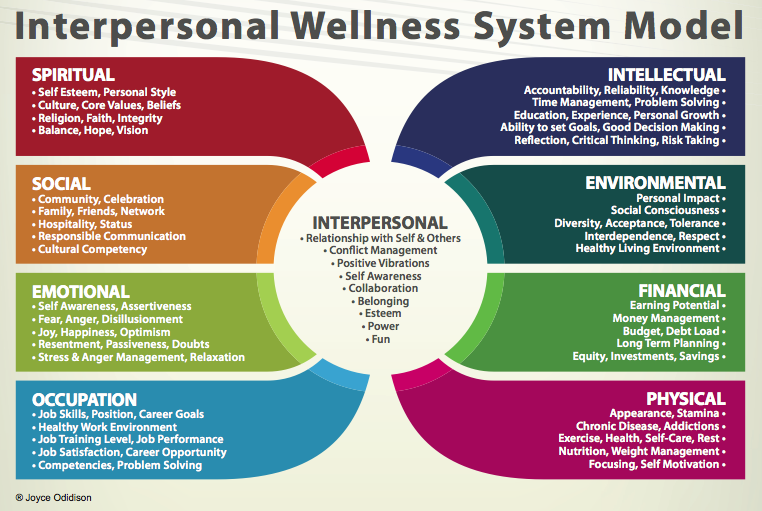 ..
..
Reader Interactions
25 Best Boosting Self-Esteem Questions
Top 25 Self-Esteem Questions To Help You Unlock Your Infinite Potential (Starting TODAY)
The self-esteem questions in this article will change your life.
Before we dive deeper, let me share some soul food with you…
“Too many people overvalue what they are not and undervalue what they are.” — Malcolm S. Forbes.
Do you feel like Malcolm Forbes’ words of wisdom resonate with you?
It’s time we get down to some real action!
In this guide, you will find 25 of the best questions to boost your self-esteem.
Because YOU have the power to paint a new mental picture in your head.
Start making the most of your gorgeous skills and talents!
Let’s dig in.
Top 25 Self-Esteem Questions To Help You Unlock Your Infinite Potential (Starting TODAY)
Life-Changing & Mind-Blowing: Boost Self Esteem Questions Cheat Sheet
Self Empowerment Time: Manifest the Positive Change for the Better RIGHT NOW
Cultivating Happiness: The 8 Components of Healthy Self-Confidence
Quick Low Self Esteem Test: (A Short Way To Get 100% Honest With Yourself)
High Self Esteem Practitioner – “Every Great Journey Starts With A Small Step”: Final Notes
Life-Changing & Mind-Blowing: Boost Self Esteem Questions Cheat Sheet
Source: pexels.com by Andrea PiacquadioRelated: The Ultimate Step-By-Step Guide To Gaining More Self Confidence
How about we skip the sweet talk, shall we?
Fasten your seatbelts!
We are jumping straight to the self-esteem questions cheat sheet below.
#1 – What are the things you are good at?
#2 – When do you feel self-sufficient?
#3 – What are your core beliefs and values?
#4 – How often do you fall victim to other people’s opinions?
#5 – What do you love the most about your body?
#6 – What activities make you feel alive, happy, fulfilled?
Source: giphy.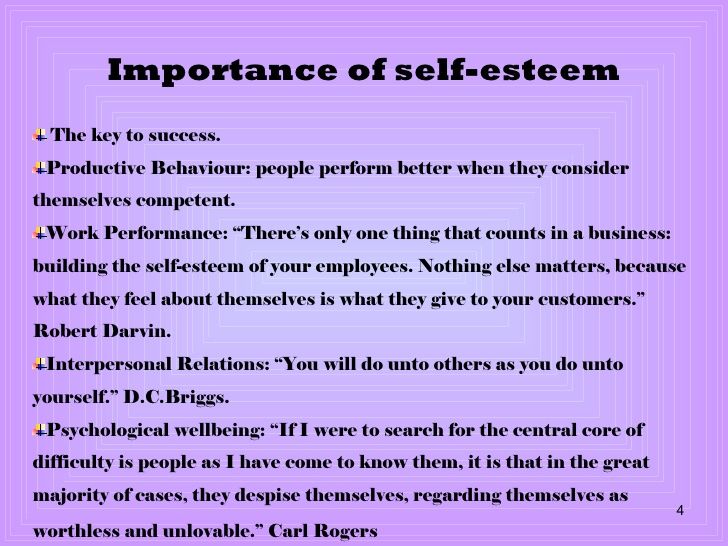 com
comRelated: 32 Characteristics Of Low Self-Esteem And Solutions
#7 – What are your limiting beliefs?
#8 – What does healthy self-esteem mean to you?
#9 – How can you help others with your unique skills, talents, and qualities?
#10 – How often do you doubt your professional/ personal competence?
#11 – Is your self-esteem a product of positive self-talk (or exactly the opposite)?
#12 – How can you transform painful experiences/ events from the past into positive lessons?
#13 – How can you help yourself improve the things that make you feel out-of-ease?
#14 – What does success mean to you?
#15 – Who are the positive people in your life?
#16 – Who are the negative people in your life?
#17 – Are you setting healthy boundaries?
#18 – What was your favorite moment this year/ this week/ today?
#19 – Which inspirational (famous) people have also faced self-esteem issues?
#20 – How can you make yourself proud today?
#21 – In which past situations in your life you have been a king (queen)?
#22 – In which past situations you have been a warrior?
#23 – What about past situations when you have been a magician?
#24 – In which past situations you have been a hero?
#25 – In which situations in the past have you been a lover?
FREE Coaching Tips!
Enter your email below to get access to my proven self-growth tips and strategies!
Related: Best 15-Day Confidence Challenge With Lasting Results
Self Empowerment Time: Manifest the Positive Change for the Better RIGHT NOW
Source: unsplash.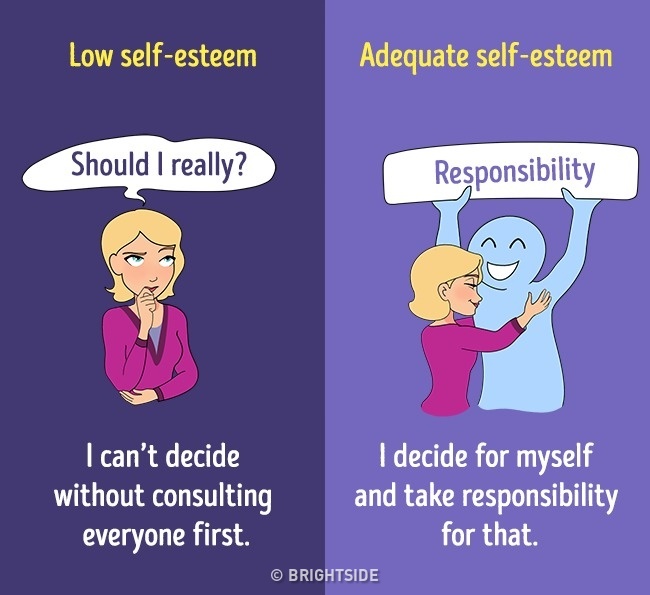 com by Michael Dam
com by Michael DamThe questions above will help you re-establish your relationship with healthy self-esteem.
The truth is, not even the best life coach can help you unless you try!
Dare to try feeling a different way about your beautiful self.
Remember, there are no right or wrong answers.
The goal is to be honest with yourself.
Take your time and feel good about it!
Recognize your feelings.
Thus, you can overcome faulty, built-in limitations and blockages.
Now, shower yourself in generous splashes of self-love.
Oh yes, boosted self-esteem feels WONDERFUL!
Moreover, be kind to yourself.
Avoid answering all the questions at once.
Instead, find a comfy spot and a suitable hour.
Create an ambient atmosphere.
Finally, calm your breath.
All the time you need is yours.
Make yourself feel one with the things you love the most.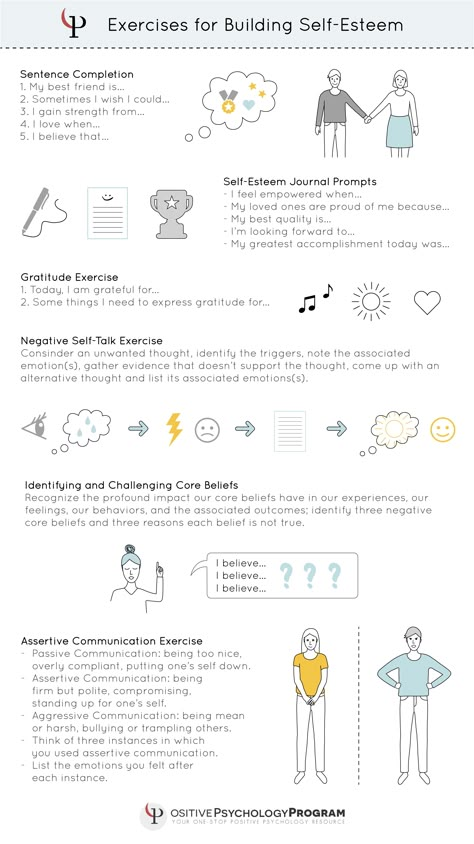
Ask yourself the right questions.
Afterwards, re-read your answers one bite at a time.
And you will find endless light even in the darkest corners of your soul.
YOU are your best friend and your worst enemy, based on your actions.
Your mental and physical health is your responsibility.
Spread positive energy.
Eliminate negative self-talk.
Make the most of your time.
Allow yourself to feel content and confident in your skin.
Have solid faith in your value!
Day after day. Step by step.
“You yourself, as much as anybody in the entire universe, deserve your love and affection.” — Buddha
Unlock Your Potential NOW!
Get FREE access to my self-growth area and achieve more fulfillment, success, control, and self-love!
Related: 102 Hypnotic Affirmations For Self-Confidence
Cultivating Happiness: The 8 Components of Healthy Self-Confidence
Source: pexels.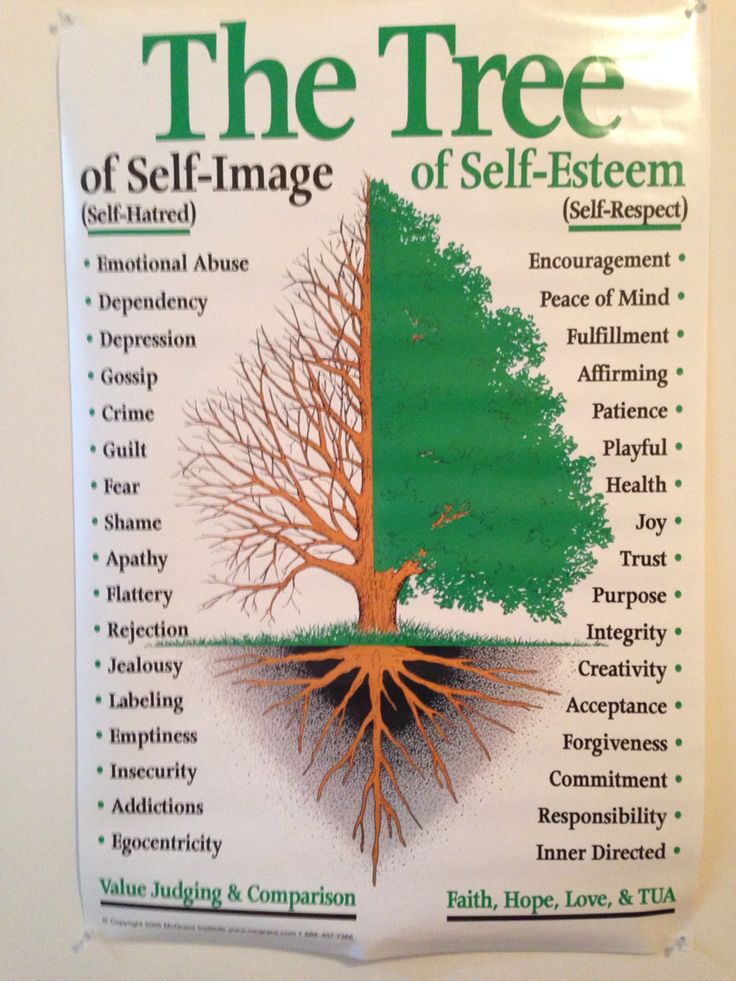 com by Andrea Piacquadio
com by Andrea Piacquadio Are you eager to (finally) feel good about yourself?
Then start paving your way to becoming a high self-esteem ninja.
Above all, you want to go through the self-esteem questions I shared with you.
Nonetheless, you need to think about the bigger picture: cultivating self-confidence.
Indeed, self-esteem is intricately related to inner confidence.
Below is a list of the “secret” ingredients of healthy inner confidence.
“What lies behind us and what lies before us are tiny matters compared to what lies within us.” — Ralph Waldo Emerson
In a big bowl, combine 1 teaspoon of:
Self-esteem
+
Self-acceptance
+
Self-love
+
Self-admiration
+
Self-determination
+
Self-respect
+
Self-belief
+
Self-assurance
Now, all you need is to shake the magical concoction really well.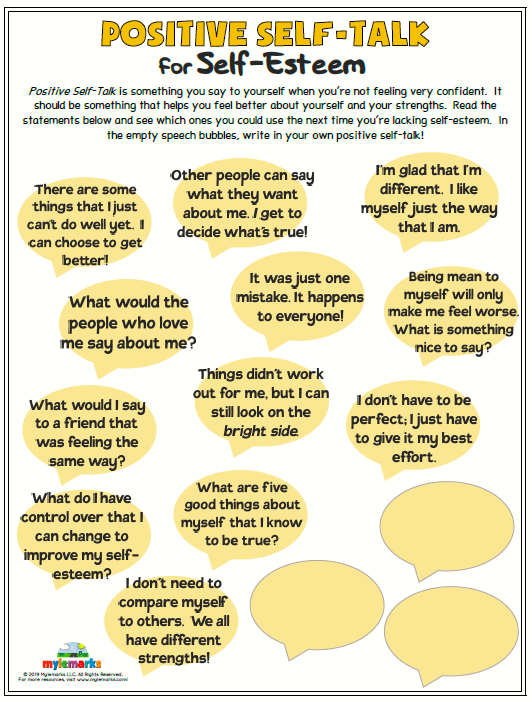
Add a dash of your free time. Sprinkle with consistency, patience, and dedication.
Top with a smile and watch the positive things in your life flourishing!
Important Notes:
I know that it can feel quite puzzling trying to find the difference between the terms above.
So I want to assure you that you don’t need to figure it all at once!
Really, the best things in life do take time.
But when you believe in the beauty of your dreams, you are ready to take the leap.
Even when the leap means diving deep into the unknown.
The key to success is to face your self esteem issues.
And then take action.
Help yourself by overcoming these nasty intruders plaguing your mind!
Curious Fact: Did you know that self-esteem follows a bell curve?
Related:
Self Concept Vs Self Esteem And Self Efficacy
Self Respect Vs Self Esteem – What’s The Difference?
Quick Low Self Esteem Test: (A Short Way To Get 100% Honest With Yourself)
Here comes a punchy low self-esteem test.
1. Why do I keep failing to get that promotion?
2. How come my personal (professional) life is such a failure?
3. Do I really deserve love?
4. Why am I not good enough for…?
5. Why doesn’t he/she find me attractive?
If your answer is YES, you get 20% OFF your me-and-my-healthy-esteem score.
The worst piece of advice you can give to yourself?
Asking questions based on NEGATIVITY!
Why do I keep failing to get that promotion? VS.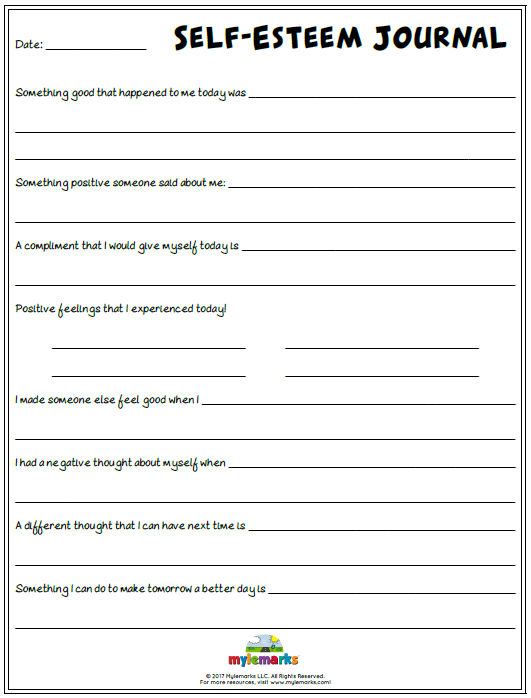 What can I do to get that promotion?
What can I do to get that promotion?
You see, the information you serve to yourself truly matters.
Related: How To Help A Man With Low Self-Esteem — Based On Science
High Self Esteem Practitioner – “Every Great Journey Starts With A Small Step”: Final Notes
Source: pexels.com by Nina UhlíkováHave you become a prisoner of what others may, would, could say about you?
You never had (and will never have to) prove anything to anyone but to yourself.
You are worthy of all the beautiful things your heart craves for.
Because YOU are the author of your reality. Even when the voice of self-doubt is trying to tell you the opposite.
You are born to make this world a better place!
Did you enjoy reading this article?
Do the self-esteem questions strike a chord with you?
I am always happy to hear your thoughts, ideas, and experience!
Join me in the comment section below.
“You can make it. I believe in you. Always.” —
Always.” —
Sincerely, the voice of your highest Self.
Related Content
Best Confidence Building Exercises Backed By Science
Ways To Stop Depending On External Validation
Self-Worthiness – 26 Ways To Boost Yours Backed By Science
FREE Coaching Tips!
Enter your email below to get access to my proven self-growth tips and strategies!
30 questions for psychologists about self-esteem
Is it good to be a perfectionist, what techniques will help raise self-esteem and what to do with those who are trying to lower it? We asked these and other burning questions about self-esteem to three leading psychologists - Olga Senchuk, Maria Brazgovskaya and Irina Belousova.
Olga Senchuk (@olgafreshhh)
Psychologist, coach
Are self-esteem and self-love the same thing?
Self-esteem and self-love are very close concepts, but they are still different things. The answer lies in the words themselves: self-esteem is how you evaluate yourself, in other words, the feeling of your worth.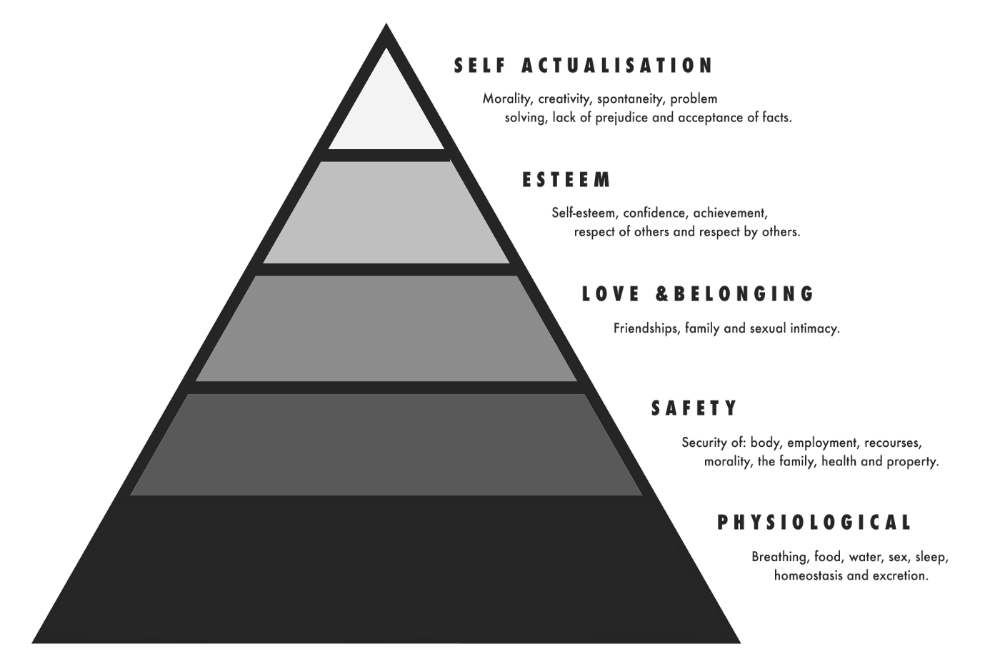 And it either exists or it doesn't. As for self-love, it's about actions and how you show your attitude towards yourself.
And it either exists or it doesn't. As for self-love, it's about actions and how you show your attitude towards yourself.
It is important to understand that “to love” is a verb, and self-love directly depends on whether you value yourself or not. If there is a sense of your value inside, then you will treat yourself exclusively with love. You will not allow yourself to suffer, to endure what hurts, because this is not done with a valuable person. And if there is no sense of value, then we try to achieve it by performing actions that, in our opinion, will make it possible to feel this value. And most often it is servility, the desire to be recognized and attempts to please everyone - and to the detriment of oneself.
Unfortunately, all these actions have nothing to do with self-love - they are all directed outward. A person thinks that, having earned acceptance and recognition by others, he will be able to treat himself well. But this plan is always doomed to failure, because self-esteem and self-love depend solely on ourselves.
Raising self-esteem once and for all - is it real?
I would put it another way – self-esteem can be stabilized. The very concept of high and low self-esteem is not entirely correct - it’s just that in different situations a person feels differently. For example, if a man liked a girl, her self-esteem is in the positive zone: "I liked it, I'm beautiful." But if a friend tells the same girl that she looks bad, self-esteem can drop sharply.
From this we draw the obvious conclusion that self-esteem is conditional.
It depends on external circumstances and people, which means that it is not necessary not to increase self-esteem, but to get rid of external influence on it. And this is quite real - but you need to be realistic and understand that we are all living people, and that there will still be fluctuations in self-esteem. But the amplitude can be minimized.
Why do we constantly want to compare ourselves to other people?
The desire to compare yourself with others is generally normal.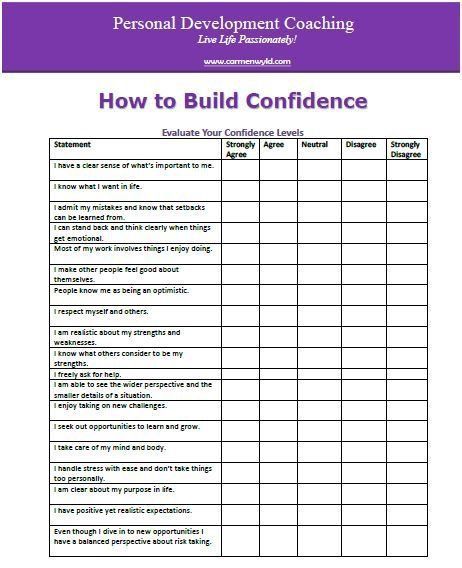 Otherwise, how could we define ourselves and realize ourselves? But there is one but. If we talk about self-esteem, then most people “value” themselves by comparing with someone else. That is, the starting point of its value is outside - and this is no longer true.
Otherwise, how could we define ourselves and realize ourselves? But there is one but. If we talk about self-esteem, then most people “value” themselves by comparing with someone else. That is, the starting point of its value is outside - and this is no longer true.
There will always be more successful, beautiful, young people, which means that our self-esteem will suffer because we are “worse” than someone else. The solution is simple: learn to appreciate yourself, regardless of the conditions around you. I have and that's good.
Yes, and comparing yourself with other people in terms of your value does not make sense. We are similar in appearance - arms, legs, head, but at the same time everyone is very different. Everyone has their own talents and zest - it is they who need to be appreciated and nurtured. My mantra for this occasion is: “we are all different, but we are equal!”.
What are the “symptoms” of poor self-esteem?
There are many of them - it all depends on the type of self-esteem.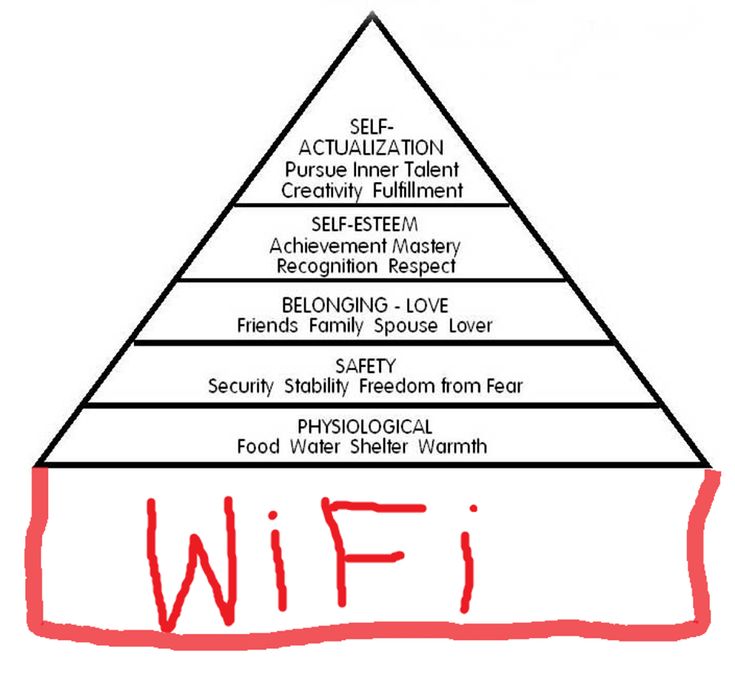 For example, if a person has such an attitude - "I must be comfortable and good", then the symptoms will be as follows:
For example, if a person has such an attitude - "I must be comfortable and good", then the symptoms will be as follows:
- desire to please everyone;
- inability to defend their borders;
- the tendency to "tolerate", even if something is not to your liking;
- inability to express anger and irritation;
- fear of being alone;
- continuation of a toxic relationship in which a person is not appreciated and used.
If there is an attitude – “I must be ideal, special, best of all”, then the main symptoms will be:
If there is an attitude – “I must be able to do everything myself”, then the following qualities will appear:
- aggression and conflict as a way to protect self-esteem;
- touchiness and tendency to blame others for one's failures;
- devaluation of loved ones;
- ignoring the feelings of others;
- fear and inability to ask for help.
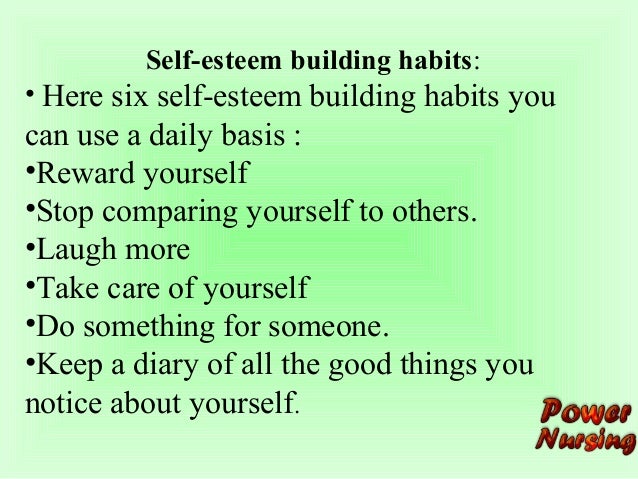
If you linger for a long time in uncomfortable conditions for you, be it relationships, work, friendship - all this is a symptom that you do not value yourself. I just want to add: “Doctor, is it curable?” Yes, it is curable.
Should you make a list of your strengths and weaknesses to determine your self-worth?
A list of one's strengths and weaknesses should be compiled during a personal analysis, but in addition to this, it is also worth supplementing all this with a list of opportunities. And also a list of what is not yet available and what is worth working with. All these lists are worth compiling if you intend to change for the better and you need to understand what exactly went wrong.
And you can determine the state of your self-esteem without lists - everything is much simpler.
Look around – are you satisfied with your life? Everything is fine? If so, your self-esteem is all right, as it is the foundation on which we build the building.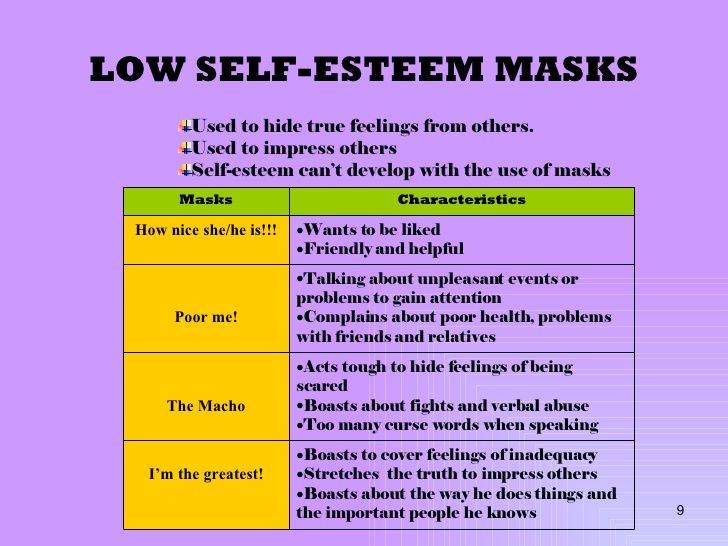 If, after looking around, you realized that something went wrong, and the building of life warped, it's time to repair the foundation, that is, self-esteem.
If, after looking around, you realized that something went wrong, and the building of life warped, it's time to repair the foundation, that is, self-esteem.
Does having a relationship affect self-esteem?
I want to say yes, but it's not true. An illusion is created - "since I have a relationship, then I'm a good woman." And, of course, many women believe that if they have a relationship, their self-esteem will grow and she will immediately fall in love with herself. Maybe temporarily, yes. But the result will be short-term, until the first conflict.
And the saddest thing is that entering into a relationship, in the hope of increasing self-esteem, you will always be accompanied by fear: losing a partner, being unloved, fear of betrayal, betrayal and loneliness. And this means that the relationship will not bring the desired result, but will only aggravate the situation with self-esteem.
Strictness to oneself - is it good or bad?
You just need to stop criticizing yourself.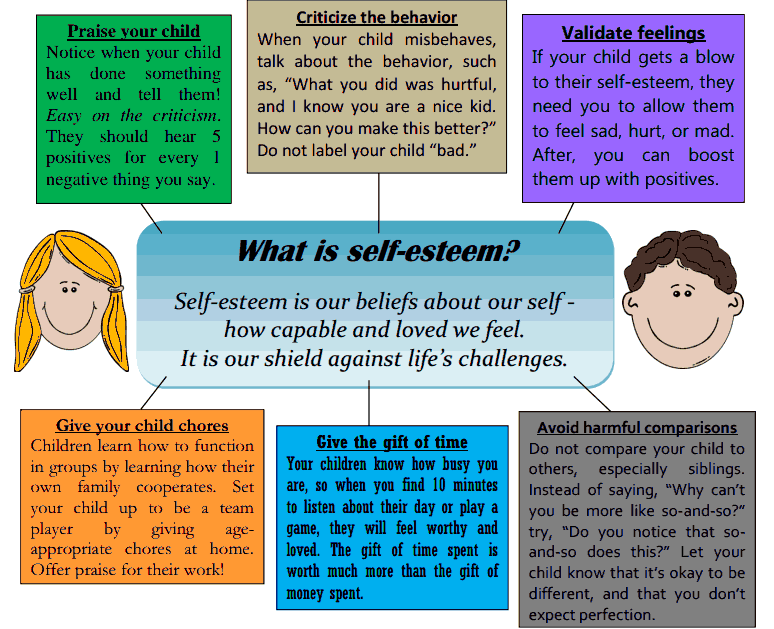 Consciously. Track your thoughts and, catching by the tail the very thought that contains criticism, change your mind, replace it with a new one, with self-approval. "I don't look good" is changed to "I'm pretty." And while you may not believe it now, it will change over time. It's that simple.
Consciously. Track your thoughts and, catching by the tail the very thought that contains criticism, change your mind, replace it with a new one, with self-approval. "I don't look good" is changed to "I'm pretty." And while you may not believe it now, it will change over time. It's that simple.
Criticizing oneself is just a bad habit that needs to be eradicated with conscious effort.
And introduce a new habit to counter it: to approve and support yourself. As for strictness, I don’t think it has a positive effect on self-esteem. Severity is about punishment, and only bad boys and girls are punished. But self-discipline is a necessary and useful thing. This is not about severity, but about the ability to organize yourself, your thoughts, feelings and actions. And without self-discipline, it is hardly possible to achieve results.
Name three common mistakes people make with low self-esteem.
First, to endure and reconcile with what does not suit and hurts.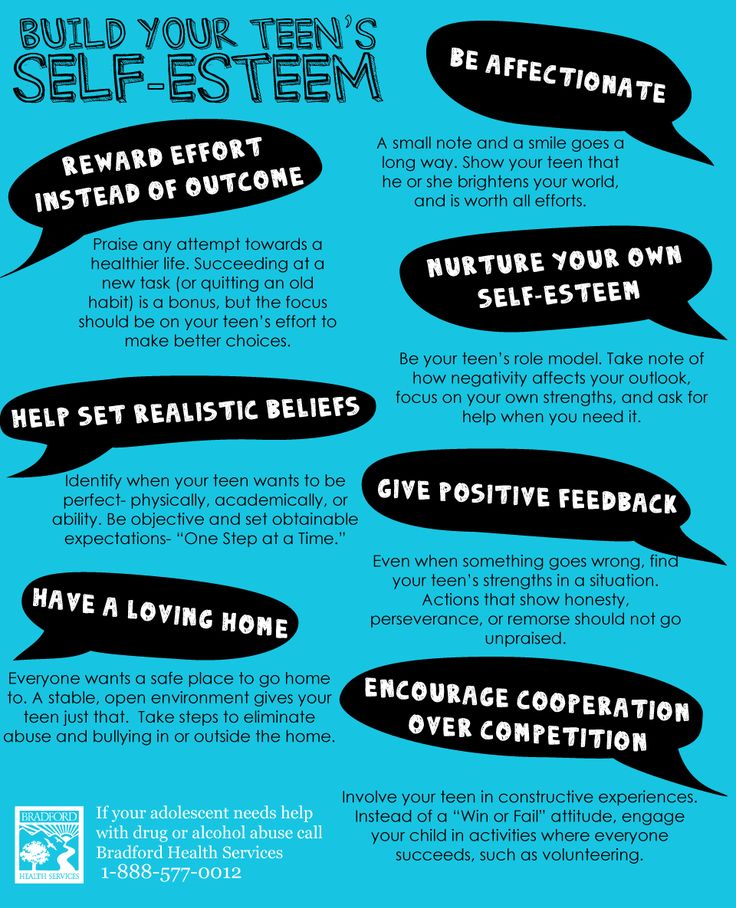 Secondly, do not believe in yourself and your strengths. And thirdly, be guided by the opinions of others.
Secondly, do not believe in yourself and your strengths. And thirdly, be guided by the opinions of others.
What gives a girl high self-esteem?
Consistently positive self-esteem gives a girl everything from the ability to build a happy relationship to the ability to monetize her talent for cross stitching.
Positive self-esteem is the basis, the foundation of life. If we value ourselves, we do not exchange for something that does not suit us. We just know that we deserve what we want, and we go for it. The option “which is simpler” simply does not arise, even in thoughts.
And, by the way, almost any client's request, whether it is self-realization and relationships with parents or with a man, one way or another, will lead to the question of self-worth.
High self-esteem and arrogance - what is the difference between these concepts?
Arrogance is the other side of a lack of self-worth. This is an attempt to compensate for their fragile self-esteem through arrogance: “Look, I'm better than you! I am special!"
But in fact there is always self-doubt and fear inside.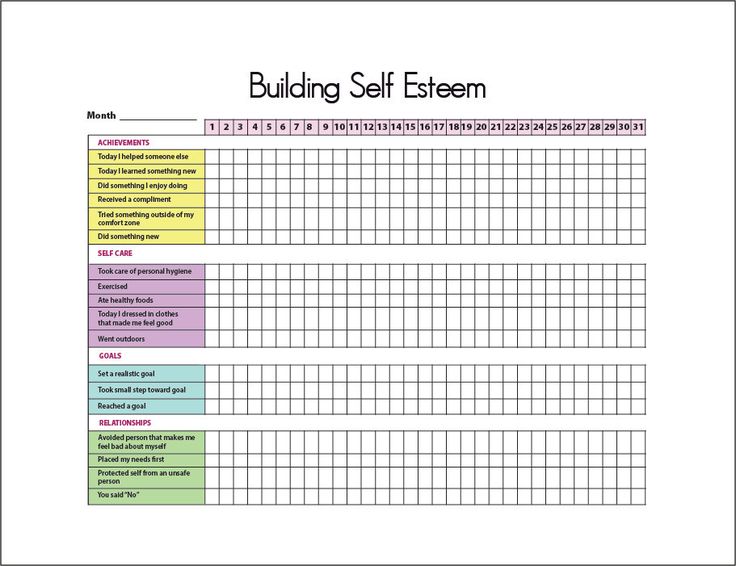 A person with consistently positive self-esteem does not need to put himself above others in order to prove something to someone. He already knows that he's all right. And the most amazing thing is that he does not want to become better than he is. It's good for him to be himself.
A person with consistently positive self-esteem does not need to put himself above others in order to prove something to someone. He already knows that he's all right. And the most amazing thing is that he does not want to become better than he is. It's good for him to be himself.
Maria Brazgovskaya (@marybrazgovska)
Psychologist
Does low self-esteem come from childhood?
This is true, but people often confuse self-esteem with self-perception. Self-awareness is actually much more important. Self-esteem is a category when we are evaluated through the eyes of others - including parents. But it also happens that a woman merges with her partner, he becomes a god on a pedestal, descended from Olympus. And then his assessment is more important.
But for me, from the point of view of therapy, not only the evaluation criterion is important, this ruler that you apply to yourself and to everyone around you, but also the category of self-perception, because if it is in order, then you can do without this ruler. When you do not confuse "I'm bad" with "I'm bad", then life becomes much easier.
What are the biggest mistakes parents make when their children grow up with low self-esteem?
It is impossible to single out a specific list of mistakes, because people can grow up in the same family with very different indicators of their vitality. Why is this happening? Probably because we are not born with white leaves. The exactingness of parents will definitely affect a person, when parents shift their ambitions to children, when you have to realize your parental potential and constantly jump up and down, whispering so that your parents notice you.
It is wrong for children to pair adults together. There are a lot of problems in the parent couple, and the children begin to "glue" mom and dad together so that they are together. Then the child is out of place, busy not with his childhood life, but with adult responsibility, he, of course, cannot cope with this, and a huge tangle of various mental problems appears.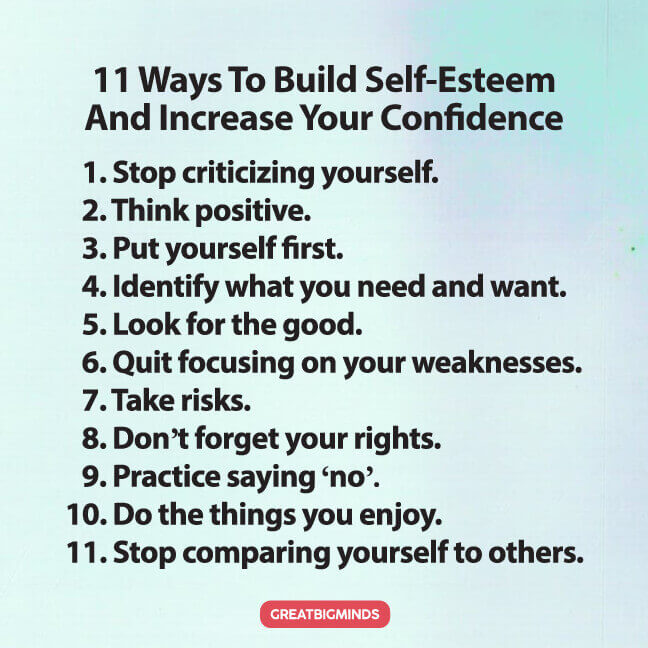
Should I accept my shortcomings or try to correct them?
Sometimes you need to notice your shortcomings first. And to notice not as a problem, but as a kind of difficulty. There is a huge amount of energy in every complex, and it is designed to grow. A person who does not know how to or is anxious to speak in public can become a brilliant speaker. Much better than the one who has this predisposition since childhood.
To begin with, one should notice shortcomings as an attentive, affectionate observer, without evaluation and self-abasement, and then try to tighten something up, correct something.
Another thing is that you shouldn't create illusions about some kind of ideality. When we correct shortcomings with the bitterness of “I won’t be accepted, I won’t be loved because I’m not perfect”, then this work is doomed to failure. When we do this out of self-love and want the talents in us to bloom like seeds and this harvest be beautiful, then we do it with care.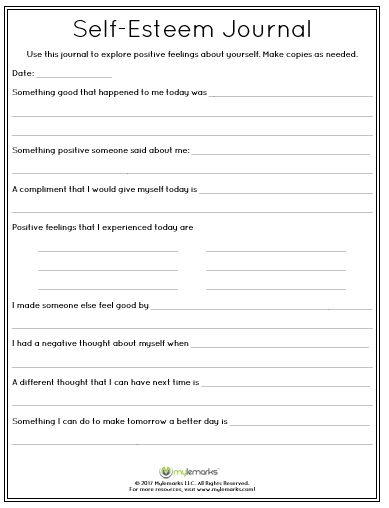
What are three simple things that can help you appreciate yourself more?
Treat yourself like a caring mother would treat you, even if you never had a caring mother or father. Appreciate your life regardless of others. An adult is capable of self-support, even if his relatives did not support him in some way. With pleasure to perceive your body, enjoy it, as if it were the body of your loved one or child. Each time, notice with surprise how beautifully you are arranged. If you leave the house and smile with all your heart, even with your liver, then somehow life is read differently.
Can self-care improve self-esteem or does it have nothing to do with appearance?
Self-care can boost self-esteem. We act in two ways: we can work with our inner world and with our outer world. Both paths have their pros and cons. Of course, when we take care of ourselves and do it without anger, without a bet that others will love me so beautiful, but we do it out of love, then yes, this love begins to fit in us.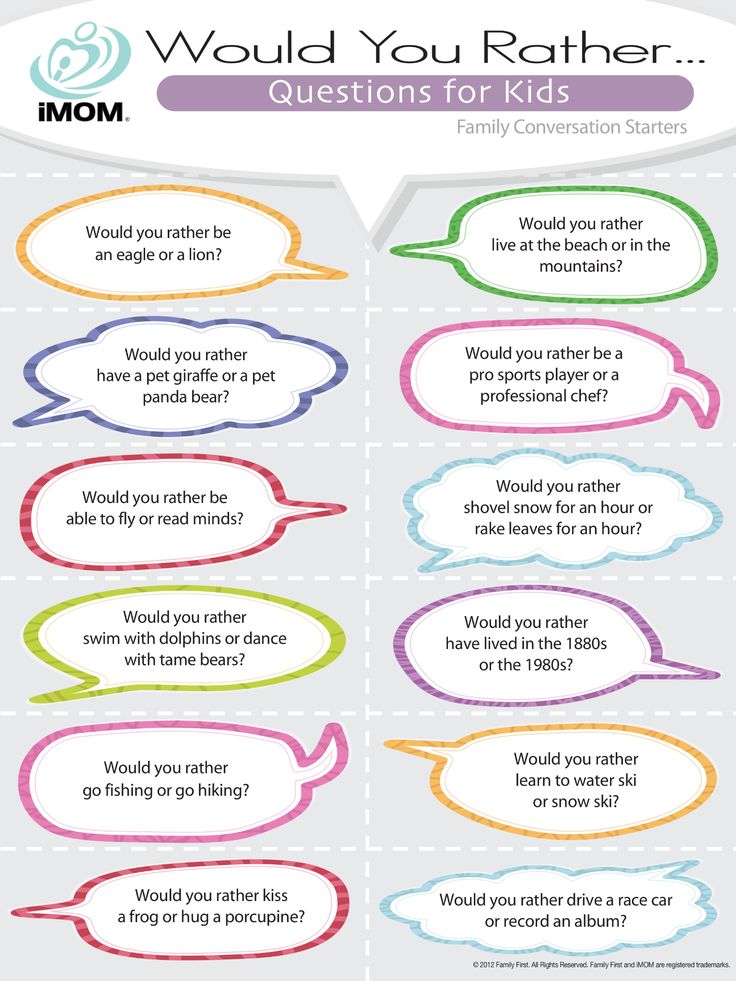
What is the difference between male and female self-esteem?
There are no such concepts as "male self-esteem" and "female self-esteem". But men are indeed more likely than women to be outward-oriented and achievement-oriented – this is due to the patriarchal nature of the country. They describe their life as achievements, while most women describe it in terms of whether they are loved and by which particular man they are loved.
These "cards" are often confused, and now there are a lot of women who are as successful as men (or even more successful) and they are also career-oriented. And their successes or failures also affect their self-esteem.
Why is low self-esteem more common in women than in men?
I would rather say that women come to the psychotherapist's couch more often, so this impression is formed. Men are simply better camouflaged, better camouflaged. There are a huge number of narcissists among men, and they perfectly hide their narcissistic defects behind a “poker face”.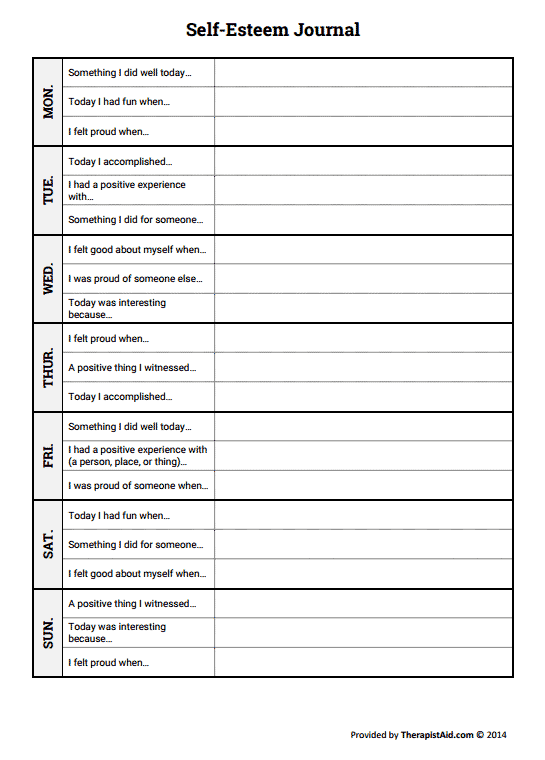 Therefore, it cannot be said that they do not have problems with self-esteem.
Therefore, it cannot be said that they do not have problems with self-esteem.
No one has ever cried more in my office than successful, rich and beautiful men.
And they cry in the same way about love, about their failures, about their parents, about the loss of meaning – when you have earned all the money you once dreamed of, but still do not feel happy. These are very vulnerable men. And it's actually wonderful when we think of men as capital men who have hearts, and not as tin lumberjacks.
Can other people influence our self-esteem and what should we do about it?
Yes, other people influence our self-esteem and sense of self. If their words hurt you, you need to work with your sense of self. Of course, we break some contacts that cause damage to us, but we cannot break some. And if you draw on your sense of self, you don't care if your mom says you disappointed her because you haven't had any grandchildren yet, or if your dad tells you that you disappointed him because not yet married, and even if your girlfriends look askance at you and your boyfriend, for example, said some nonsense, like he likes breasts of the fifth size, and you immediately began to compare with your C grade.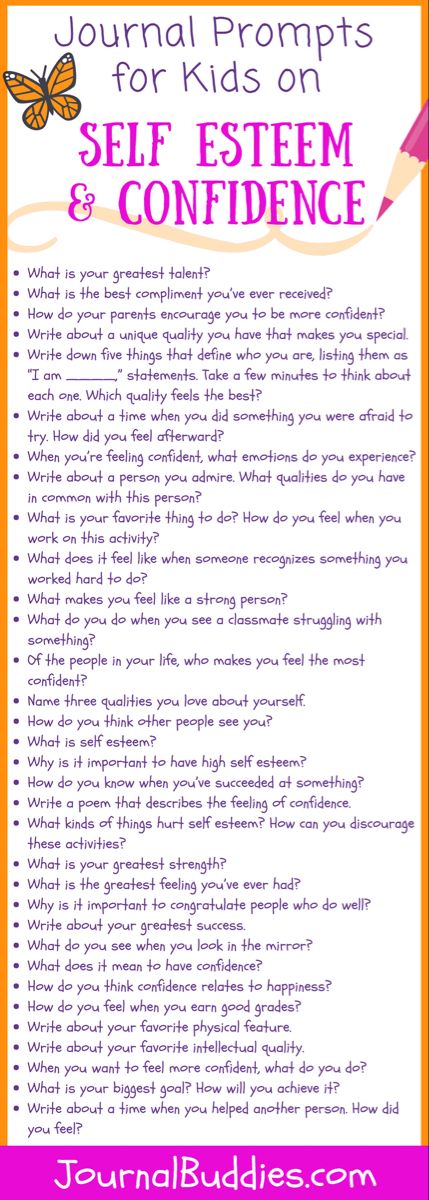
So, if your self-awareness does not improve, there is absolutely no need to cut off these connections. We work in two directions: if we are influenced by the words of close people, then you just need to filter what they tell us - this is their picture of the world. But there are people who deliberately harm us. Maybe, like Bulgakov's - not because they are evil, but because they are unhappy. Here we do not have to keep them in our space.
Men like women with slightly low self-esteem - is this true or myth?
It's a myth - men like different women, women like different men.
There is just such a category of men who find it easier to withstand women with low self-esteem, because such women begin to look into their mouths in every possible way.
This is probably a question of choice: do you love a man and you are with him, because he sees you as an equal partner, or do you need a man who would like you to endlessly stroke his ego? Some women are fine with it.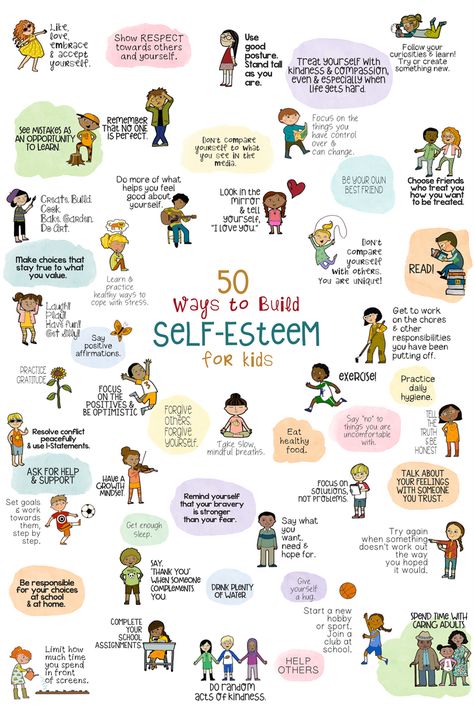 The main thing is that everyone is happy.
The main thing is that everyone is happy.
Does self-hypnosis help to increase self-esteem or will it not be enough?
Personally, I don't believe it. Working with self-esteem is a huge complex of different activities, and not a button that you pressed, and everything changed. This is the creation of a completely different reality around you. This is the acquisition of your ability to act, and not just dream. This is definitely a reformatting of some old connections and what is called the remythologization of previous experience - when we pay attention to our past and can interpret it, bring in new meanings that will no longer hurt us.
This is working with our shame and healing from it, because when we constantly blame and shame ourselves, we punish ourselves. And the one who is punished is humiliated. This includes, among other things, a look at how much you are a perfectionist, because this is a stick with which you can beat yourself and others; endless attempts to jump up to a very high bar.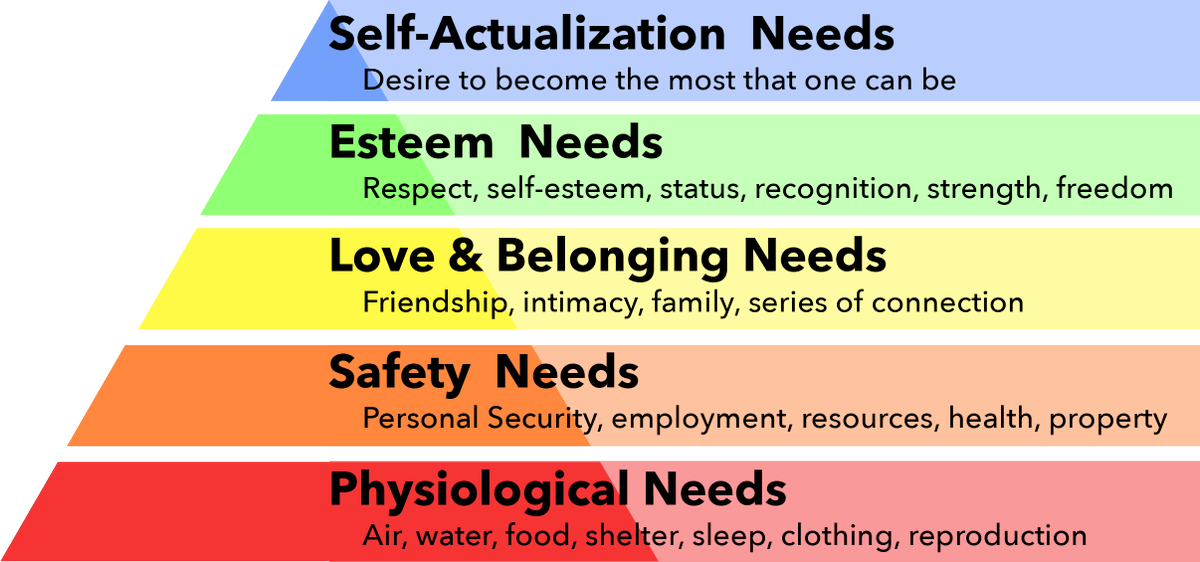 They also do not give the feeling that everything is in order. Then you need to look for this balance, when on the one hand you raise the bar, but on the other hand you rejoice at the very process that you are jumping.
They also do not give the feeling that everything is in order. Then you need to look for this balance, when on the one hand you raise the bar, but on the other hand you rejoice at the very process that you are jumping.
Absolutely this is such an appeal to myself: when I look at my life, I accept my past, I am better than yesterday. When I rejoice not only in success, but also in the fact that I have squeezed something out of myself. When I interpret my experience. There is a big difference between "I'm a failure" and "I failed three times." There's a lot going on here, and hypnotic self-persuasion does kind of raise your vitality, but it's just one of the tools.
Irina Belousova (@belousova_psychology)
Psychotherapist, psychologist
Can the problem of excess weight be called a consequence of low self-esteem?
Excess weight cannot be called a direct consequence of low self-esteem, since these two phenomena can exist separately from each other.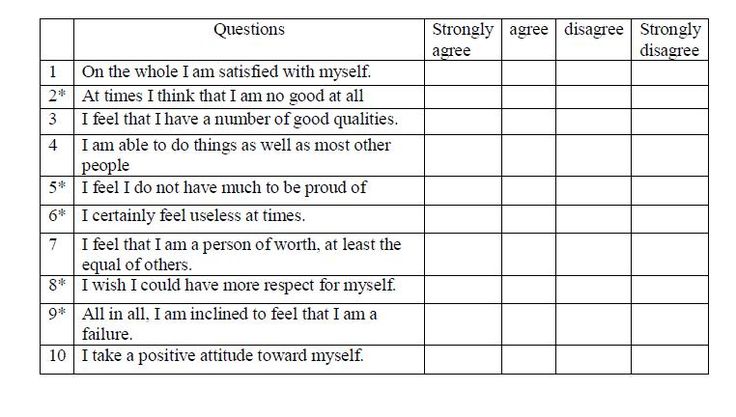 However, in most cases there is a connection: overweight people have traumatic experiences. These are the children of the oppressive and not knowing respect for the younger generation of parents. Or the personality has been repressed in a traumatic love relationship.
However, in most cases there is a connection: overweight people have traumatic experiences. These are the children of the oppressive and not knowing respect for the younger generation of parents. Or the personality has been repressed in a traumatic love relationship.
Excess weight is practically learned and "gone" to the physical level desire to present one's Self, protect one's boundaries, attract good attention to oneself.
And at the same time avoid intimacy, because it can be destructive. People unconsciously resort to such methods when there are learned settings forbidding the manifestation of their will. It is necessary to work with a psychologist in the direction of “growing” the personality and gaining psychological autonomy. Otherwise, the weight will never become stable healthy.
What is the relationship between a healthy lifestyle and high self-esteem?
High self-esteem may not always be adequate. But there is a connection with healthy self-esteem, and it is mediated by the level of maturity of the individual.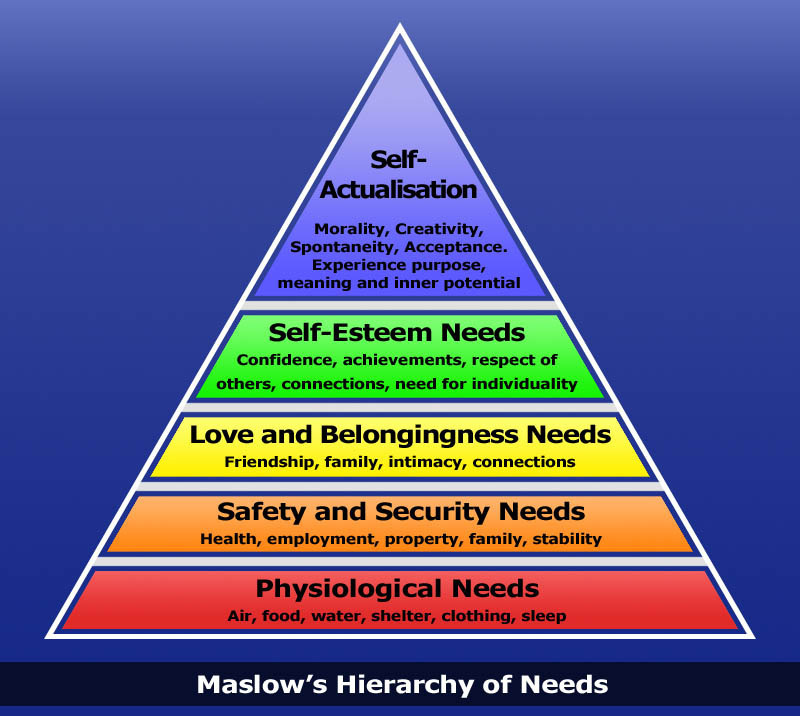
First of all, people who value and love themselves wish the very best for themselves. Secondly, healthy self-esteem is an indicator of a person's maturity. A sufficiently mature person knows how not only to wish, but also to do something for himself, so that he gets what he wants. Even if it is sometimes difficult and lazy. For example, exercise to be healthy. Thirdly, self-love is not only “taking all the best”, it is also about rejecting the bad in the long run. This is a deep motivation, with the acquisition of which it becomes easy to follow exactly the lifestyle that meets the needs of the moment.
What are three key self-esteem booster phrases?
1) I am and can be in this world. The world around is also there, and it can also be the way it is.
2) All my feelings, sensations, aspirations, desires, values are real, this is my open response to such a different life. I have the right to be myself.
3) And all this is well arranged and filled with meaning.
These phrases seem strange at first sight. However, they correspond to very subtle and important spiritual aspects of life, without the mental assimilation of which a person cannot have a healthy self-esteem.
Is it important to step out of your comfort zone and will it help you build self-esteem?
Not as important as inevitable. If there is no growth, then there is degradation, this is how a person works. Any growth is through the elimination of the old and the collision with the new. And the new is often painful until it has "grown" into the experience. If you want growth for yourself, expansion of your personality - in any of the aspects (physical, spiritual, psychological, social), then you yourself will look for something new in order to first encounter it, and then learn it. In this there is a certain interest in life, as in a process.
And - yes, when you see how well you have grown by comparing yourself a year ago and yourself today, you are happy for yourself and affirm your good attitude towards yourself. That is, your self-esteem grows and grows stronger.
That is, your self-esteem grows and grows stronger.
What are three signs of good and healthy self-esteem in a person?
1) The absence of painful experiences and envy, both when comparing oneself with others, and when receiving any assessments from the outside;
2) The ability to say "no" if it is not useful or not desirable;
3) The ability to be yourself without excessive desire for the admiring responses of others to the manifestations of your person, that is, confirmation of your value from the outside.
Can perfectionism be considered a sign of low self-esteem?
There is definitely a connection. The constant striving for perfection, which remains unattainable, stems from the once learned program (most often in relationships with parents or in love relationships): “you are OK, if only you are the best.” And it entails a constant feeling of dissatisfaction with life, because there is no that very feeling of “I’m okay”, and being on top is not always about life.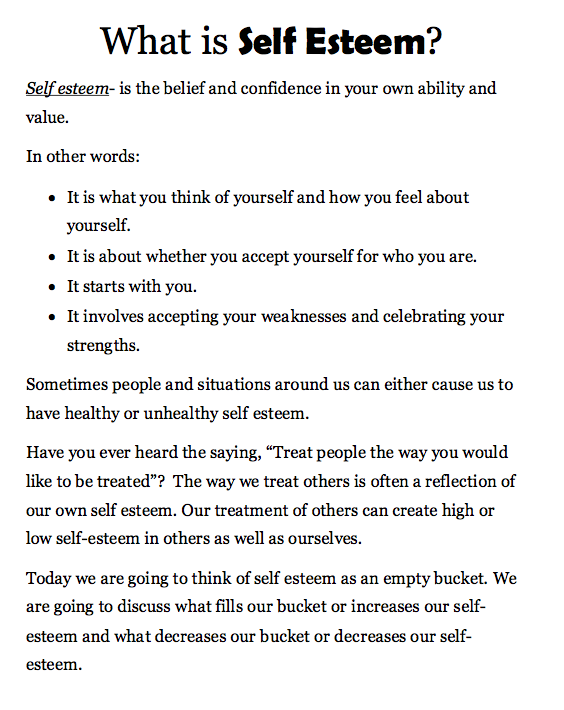 It turns out a vicious circle, from which it is difficult to escape, if you do not slow down in the eternal pursuit of an ideal result. Calmness is born at the point "I am, and I can be so in this world." As you can see, there is no smell of crazy performance in this calm statement of life.
It turns out a vicious circle, from which it is difficult to escape, if you do not slow down in the eternal pursuit of an ideal result. Calmness is born at the point "I am, and I can be so in this world." As you can see, there is no smell of crazy performance in this calm statement of life.
How does our inability to say “no” harm us?
The inability to say “no” is about the inability to defend one's borders. And this is usually associated with low self-esteem. The more often you do what you don't want to do (or allow others to do what you don't want), the more often your boundaries are violated. In fact, this is somewhere near the betrayal of oneself, one's values, aspirations, the violation of one's space by oneself. Of course, deep down, a person begins to treat himself negatively.
How to avoid getting into a bad mood and not paying attention to negative thoughts?
It’s impossible not to convert at all (and why alienate what you have and how you feel?), but you need to be able to switch and refuse what you don’t need and isn’t useful.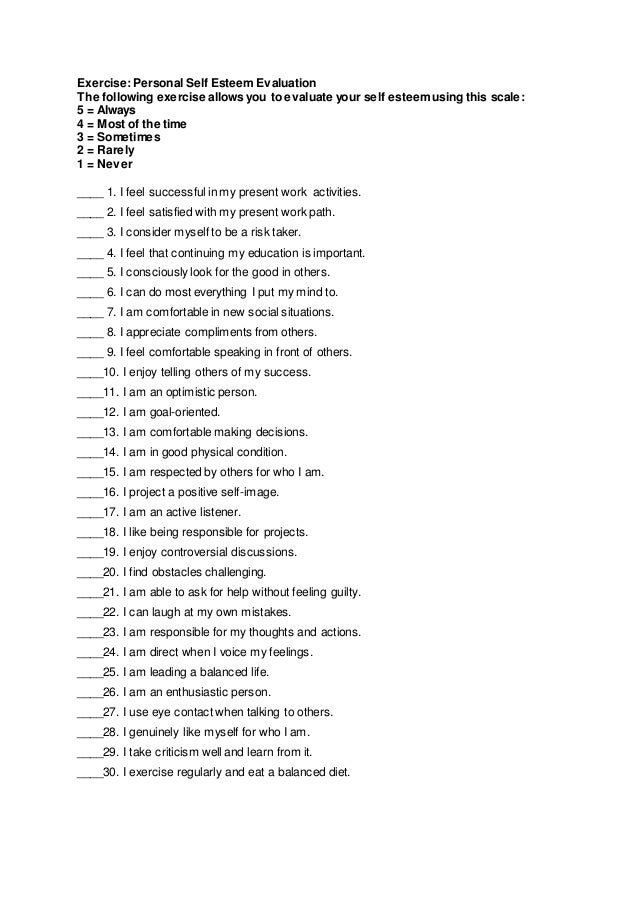 What good will happen if you rub your brain into the dust because of, say, an unsuccessful haircut? This, of course, is frustrating, the question is how much and for how long?
What good will happen if you rub your brain into the dust because of, say, an unsuccessful haircut? This, of course, is frustrating, the question is how much and for how long?
Your bad mood will not lead to any real actions, since falling into a "resentment" is a child's position, not an adult's. It will entail an adequate desire to change the situation and somehow correct the unsuccessful result. And this is about composure, not about frustration. In addition, a negative attitude and being stuck in the past entails disconnecting from reality. Longing-sadness is addictive, and you stop seeing the good that is happening around you here and now. Do you need it?
How to accept praise and is it important to praise yourself?
With joy and playful acceptance! And stop hanging on thoughts a la "they need something from me, since they praise." If necessary, ask directly. And if they don’t know how to ask directly, don’t take on extra responsibility for someone else’s inability.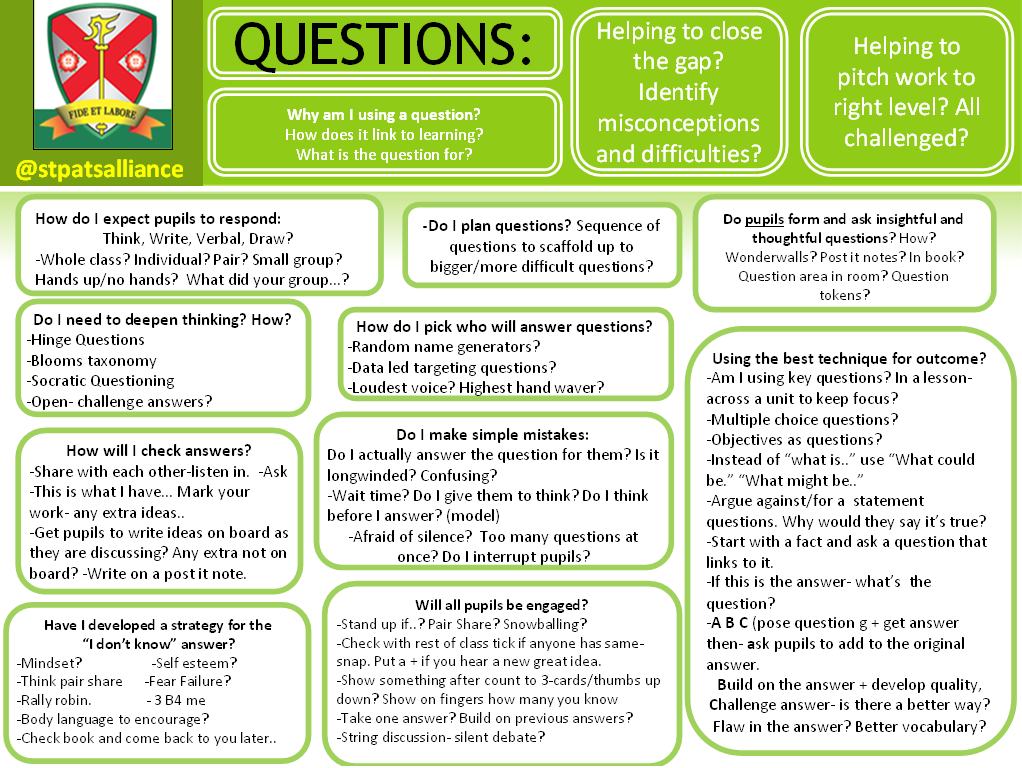 Why additional worries? And “no-no, I’m not so good, I don’t deserve such words ...” - this is also a parasitic thought that has to do with your perception of yourself, and not with the opinions of others. Or maybe deep down inside you are afraid of being wonderful, good?
Why additional worries? And “no-no, I’m not so good, I don’t deserve such words ...” - this is also a parasitic thought that has to do with your perception of yourself, and not with the opinions of others. Or maybe deep down inside you are afraid of being wonderful, good?
Track where you have "hooked" your obsessive thoughts that prevent you from accepting positive evaluations from others. This is called "introjects", and this is the basis for working with a psychologist.
Of course, it is important to praise yourself. In this case, you perform for yourself the role of that very good mother, on whom the formation of a stable self-esteem in a child depends and who, with kindness and acceptance, notes the good and encourages more than criticizes and devalues.
I often give clients the "I'm smart" technique: every day write a list of 10 phrases starting with the words "I'm smart because ..." - and then continue to write something for which you are ready to sincerely praise yourself and rejoice at your success.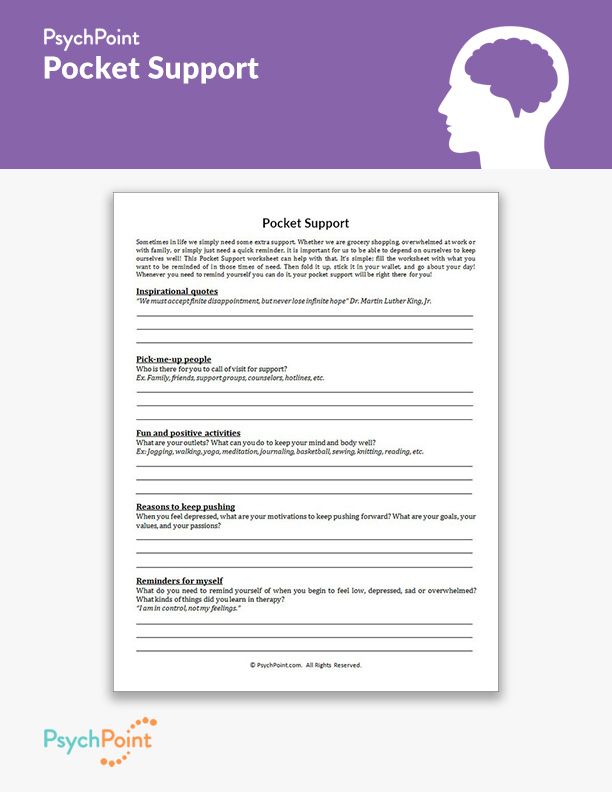 Even if it's very small. The technique should be tested at first to show the client the cognitive distortions that most self-esteem workers make.
Even if it's very small. The technique should be tested at first to show the client the cognitive distortions that most self-esteem workers make.
Is it necessary to use training to improve self-esteem?
This will speed up the process, but you need to understand that most short trainings work with the behavioral component of self-worth (a person is taught the algorithm of actions in typical social situations so that his behavior corresponds to the standard mode of action of a person with a sufficiently high self-esteem). Working with self-image, self-acceptance, self-respect, and self-love is a deeper task that takes time and commitment. For those who really need to be at peace with themselves, and not create an illusion, I recommend not to stop at the trainings or at least watch how long the training takes. For example, my courses, designed for deep and serious work, last at least a month each.
Text: Anastasia Speranskaya33 self-assessment questions (plus how to make your self-assessment meaningful) • BUOM
Posted by the Indeed editorial team
February 26, 2021
include self-assessment as part of the process.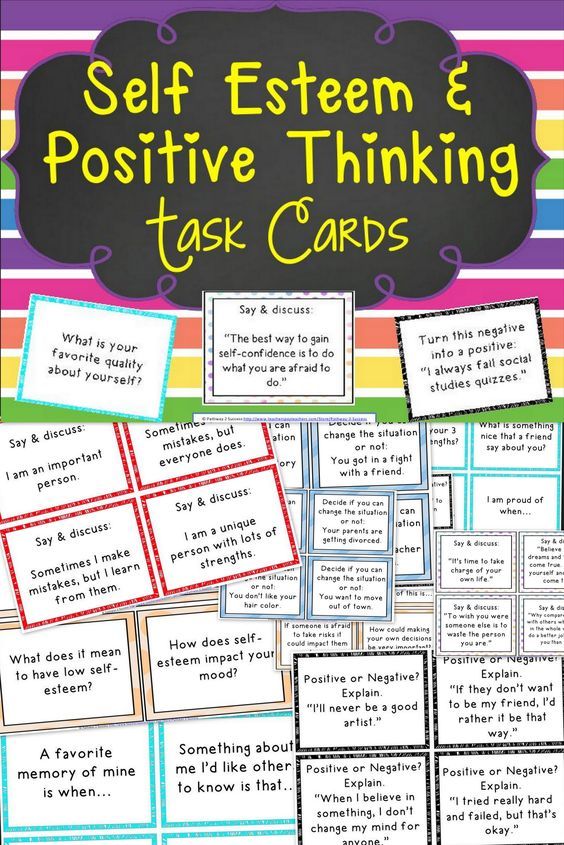 Self-assessment can help employees take a closer look at their own work and identify the best strengths as well as areas for improvement. Reviewing the self-assessment questions list can help you feel prepared for the types of questions your company may ask during the review. In this article, we share a list of self-assessment questions, tips on how to make self-assessment meaningful, and what you should do about areas that need improvement.
Self-assessment can help employees take a closer look at their own work and identify the best strengths as well as areas for improvement. Reviewing the self-assessment questions list can help you feel prepared for the types of questions your company may ask during the review. In this article, we share a list of self-assessment questions, tips on how to make self-assessment meaningful, and what you should do about areas that need improvement.
What are self-assessment questions?
Self-assessment questions are questions specially designed to help you evaluate your own performance in the workplace. These questions are usually designed to stimulate thought and encourage employees to spend time thinking about what they want to achieve in their career.
Self-Assessment Questions
Here are the different types of self-assessment questions you can include in an employee's self-assessment:
Job questions
These questions are designed to help the employee analyze aspects of their job:
-
Review your job description.
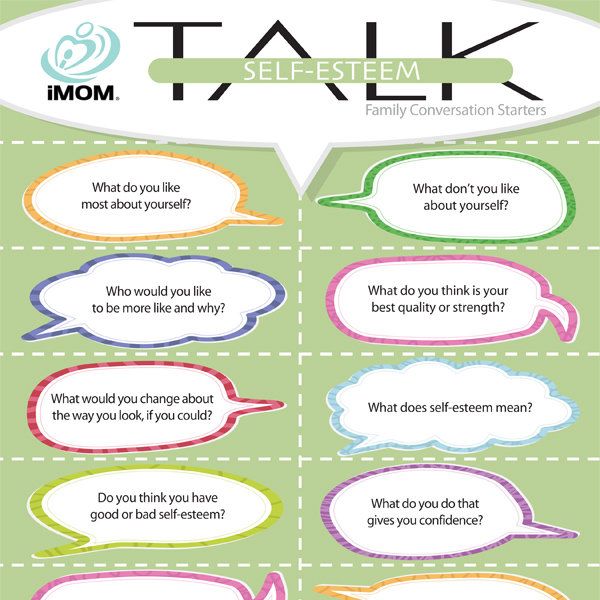 Are there any areas of work that require extra time or that you no longer do?
Are there any areas of work that require extra time or that you no longer do? -
Describe the responsibilities you have taken on or problems you have encountered since the last performance review.
-
What do you like best about your current position?
-
What aspects of your work would you most like to change or eliminate and why?
Performance Questions
These questions are designed to help employees think about their job related work:
-
What were your main goals in your role and to what extent do you think reached?
-
What three things have you done well in the last three months? Why do you think you have been successful?
-
Where do you think your skills will be most useful? Are there any specific areas or projects?
-
Give an example of a difficult situation that you handled well and the strengths you used to achieve that end result.
-
How would you rate your performance since your last meeting with your manager? Why are you rating yourself like this?
-
What is your biggest achievement in the last three to six months?
-
What goals would you like to achieve since the last assessment, but have not achieved?
-
Is there anything you can do to help you achieve these goals? If so then?
-
What kind of work do you do outside of your current role?
-
What specific goals would you like to achieve during the upcoming evaluation period?
-
What steps can your manager take to help you achieve these goals?
-
What can the organization do to help you achieve your goals?
Professional Development Questions
These questions are designed to help employees think about areas they want to develop in:
-
What are one or two examples of your professional development during the last evaluation period?
-
Do you feel like you spend enough time and resources on your own professional development? Please explain why you feel you did or didn't.
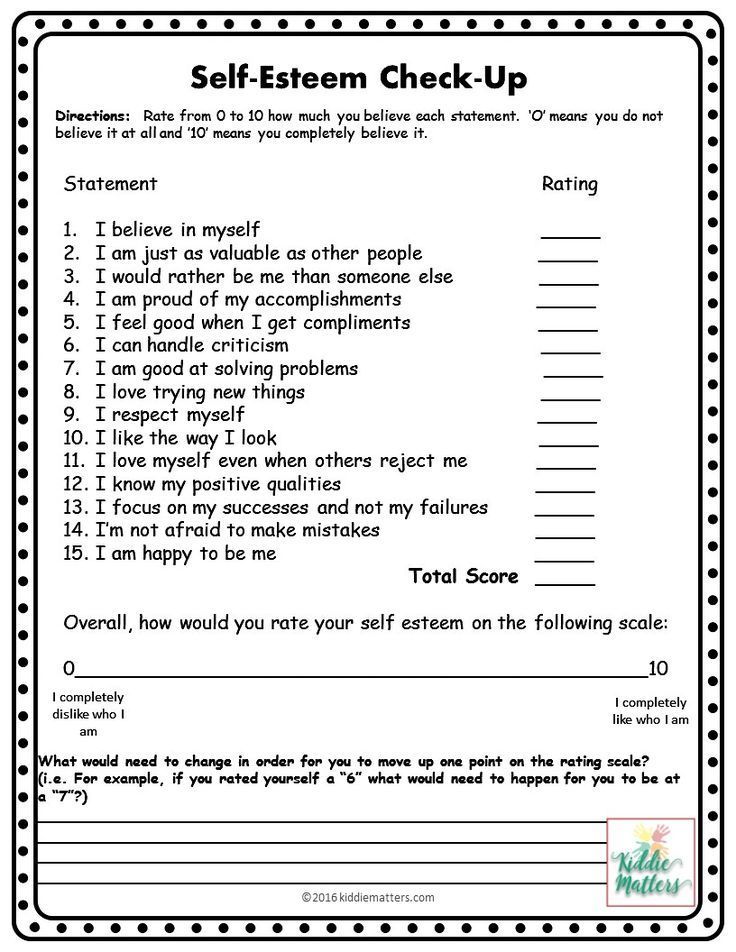
-
What career development or professional goals do you hope to achieve in the next three years?
-
What support and resources can the company provide to help you achieve these goals?
-
What professional goals could you set that could help you improve your performance in your current position?
-
What specific skills would you like to develop during the upcoming evaluation period?
Questions to encourage growth
These questions are designed to encourage personal responsibility and growth:
-
Did you work as hard as you could? If not, why not?
-
Have you set and maintained high standards for yourself? If not, why not?
-
Do you feel that you spent time doing quality work?
-
Were you able to deal with distractions and procrastination in order to complete your work?
-
Have you made the best use of the tools, equipment, people and other resources available to help you succeed in your role?
-
Did you ask questions when you needed help?
-
Do you constantly check your work for errors?
-
Have you learned best practices for your job?
-
Are you proud of your work? Would you show it to others?
Behavior and Values Questions
These questions are designed to help the employee think about their job and how it relates to the company's values:
-
Do you feel like you embody the company's values? If so, which ones?
-
Did you consistently meet your work obligations?
Tips for making self-assessment meaningful
Here are some tips on how to make employee self-assessment as meaningful as possible:
Focus on your long-term career plan
While your self-esteem is partly related to your current role, it should also be focused on your professional development and long-term career plan. Take the time to consider where you want to go professionally in your career and then evaluate the skills and possibly certifications that will enable you to reach those goals. As part of the assessment process, you should discuss your career progression with your supervisor and set realistic expectations.
Take the time to consider where you want to go professionally in your career and then evaluate the skills and possibly certifications that will enable you to reach those goals. As part of the assessment process, you should discuss your career progression with your supervisor and set realistic expectations.
Maintain an ongoing dialogue
Determining the direction of your career is an important first step. However, you should also use self-assessment to create an ongoing dialogue with your manager about your business-related career path. For example, you can consult with your manager to determine the company's biggest priorities and if there is anything in particular that you should focus on. You can also ask your manager if there is anything you can do to make their job easier.
Stay positive
Most of your self-evaluation should consist of positive comments, and a small part should be about areas that you could improve or develop. In this section, you should also develop a plan for how you want to improve these areas during the upcoming review period.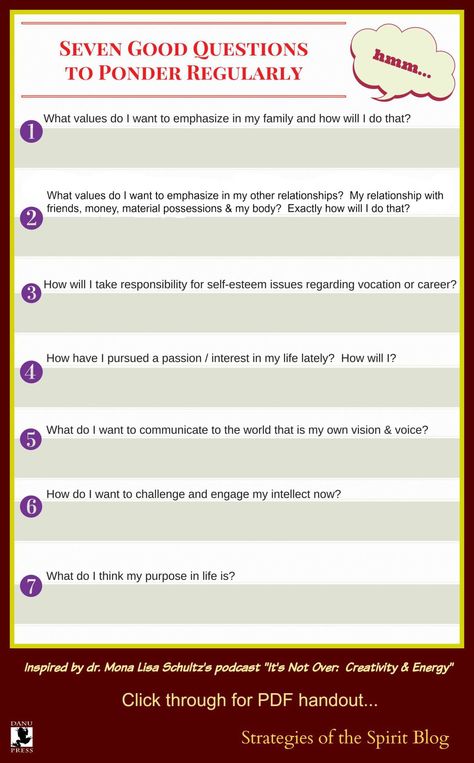 All evaluation should be focused on your own work, achievements and professional development.
All evaluation should be focused on your own work, achievements and professional development.
Ask how grades are used
When assessing employees, it is important to ask how the company uses self-assessment. For example, you should find out if they are related to promotions or bonuses and to whom they will be passed on. This can help you understand the tone you should use in your assessment and the level of detail you should include.
What to do about areas that need improvement
As mentioned above, a small part of your self-evaluation should focus specifically on areas where you could improve your performance. Here are the steps you should take to improve your performance in these areas:
Request training
After identifying specific areas in which you need to grow to better fulfill your role or advance professionally, you must provide a specific plan for how you will improve. Identify specific learning that supports your professional development, whether it be a training course or attending a conference.






